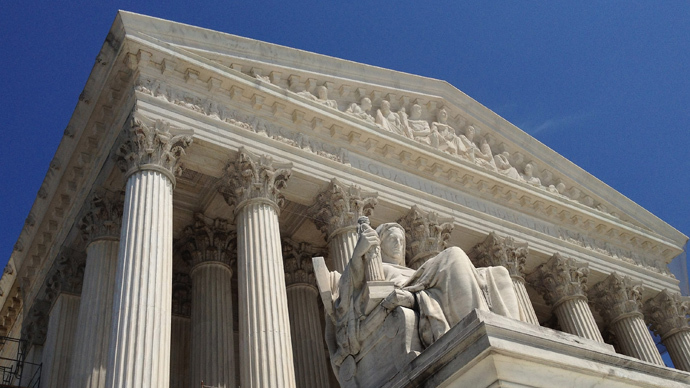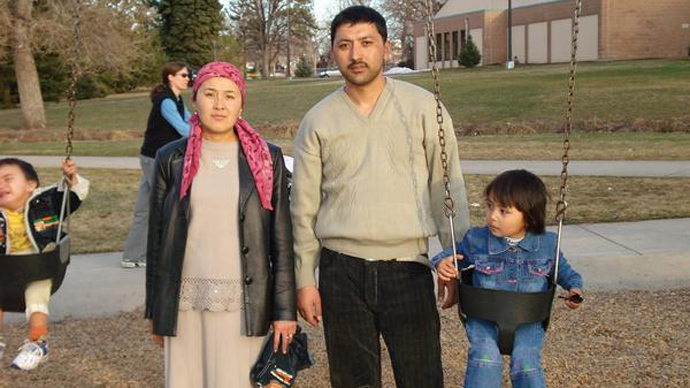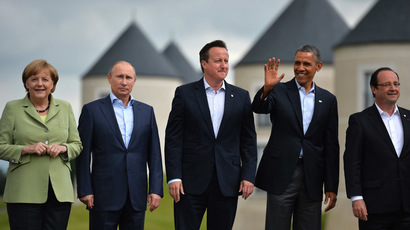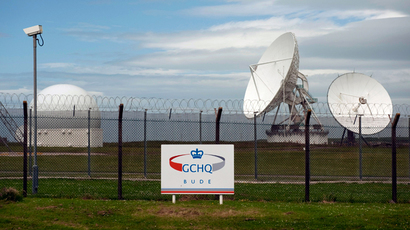Warrantless surveillance evidence to be used in US terrorist case

In an unprecedented move for the US legal system, the federal government has notified a suspect in a terrorist case that it is going to use information intercepted through warrantless surveillance as evidence against him.
In a court filing, the US Justice Department informed the legal
team of terrorist suspect Jamshid Muhtorov of its plans to use
communications obtained without a warrant as evidence against
him.
In the filing, the government plans to use as evidence
"information obtained or derived from acquisition of foreign
intelligence information conducted pursuant to the Foreign
Intelligence Surveillance Act of 1978".
The introduction of such evidence for the first time in a
criminal case in the US comes amid the escalating NSA spying scandal and ongoing debate about
notifying defendants about existing evidence against them,
collected by illegal surveillance.
Uzbeki-born Muhtorov was arrested by the FBI last year for
allegedly providing aid to the Uzbek terror group known as
Islamic Jihad Union (IJU). He is suspected of engaging NATO and
US forces in Afghanistan in 2008. It is alleged that the
35-year-old was heading overseas to fight on behalf of the IJU.
During the course of the investigation which started last March,
agents recorded communications between Muhtorov and the
administrator of an extremist website that they obtained from the
suspect’s two accounts. In collaborating with the group,
Muhtorov allegedly used code words, claiming that he was
"ready for any task, even with the risk of dying".
The FBI also has communications data from Muhtorov's phone lines.
In one call it is alleged that the suspect said that the Islamic
Jihad Union needed support. The affidavit filed in the case by an
FBI agent also said that the person on the other line warned
Muhtorov not mention the founder of the book during the
conversation. In another call with his daughter last July,
Muhtorov told her that he would not see her again "but if she
was a good Muslim girl he will see her in heaven," the
affidavit said.
The evidence also suggests that Muhtorov and another suspect
Bakhtiyor Jumaev plotted to carry out terrorist acts. The
affidavit claims that Islamic Jihad Union opposes the Uzbek
government and has been placed on a foreign terrorist
organization by the US following attacks on US and Israeli
embassies in 2004 in the capital, Tashkent.
Muhtorov, a human rights worker, was arrested on 21 January 2012.
If convicted Muhtorov faces up to 15 years in prison.

Earlier this year the US Supreme court has dismissed a case
challenging the 2008 expansion of FISA which allows legal
authority to warrantless surveillance on American soil. The
lawsuit has accused the Department of Justice of avoiding
judicial review of its surveillance programs by withholding such
evidence.
The Supreme Court justices voted 5-4 that the plaintiffs, namely
Amnesty International had no legal ground because there was no
proof of the fact of surveillance.
But in Muhtorov's case the Department of Justice has now
officially confirmed the suspect was under warrantless
surveillance, clearing the road for a possible legal battle in
the US Supreme Court.
"We welcome the government's belated recognition that it must
give notice to criminal defendants who it has monitored under the
most sweeping surveillance law ever passed by Congress," said
Patrick Toomey, staff attorney for the American Civil Liberties
Union, which represented Amnesty in that case.














